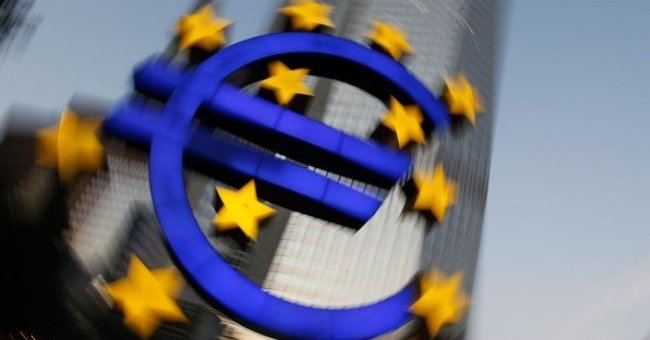EU/Eurozone: a strained relationship?
Since the beginning of the euro crisis, there has been a widely ignored debate. Most political and editorial declarations assert that the Eurozone should integrate more besides the European Union. These comments never take into account the risks related to such coexistence. Numerous tensions and conflicts of interest could in fact emerge from it.
Indeed, these two distinct Europe seem based on analogical yet antagonist foundations and projections.
The European Union itself comes from the difficult reconciliation of opposed interests, commonly divided between integrationists and euro-skeptics. Its unification usually proceeds in leveling down the relations between member States (e.g. suppression of all barriers, strict regulation of macro-economic interventions).
The stakeholders in the negotiation on the Eurozone’s future are, in principle, less heterogeneous that those that conceived the European Union. Participating in the monetary union was already an integrationist proclamation for its constituent States. Moreover, they are under pressure to accept a dramatic and consistent integration in order to fix the congenital faults of the single currency –including its absence of a common economical vision, its lack of a genuine budget, and the disparities between its national fiscal systems. Therefore, it is very likely that the new Eurozone will be based on a thinner ideological gap than the one that gave birth to the European Union.
Furthermore, the idea that the European Union will last implies that the Eurozone will participate in the Single Market. Therefore, even if the Eurozone disposed of a genuine budget and even if it had both the means and the legitimacy to intervene macro-economically, it would still fall under the purview of the European Commission, which is omnipotent when it comes to the regulation of the Single Market.
In this case, the Eurozone, with its critical mass, could be tempted to bypass the European Union. Would it be ready to abandon the idea of intervening in its economy for the sake of the Single Market while simultaneously constituting both its core and its engine?
In that sense, the deepening of a multi-speed Europe could fragment the continent between opposing blocks rather than unifying it. The interests of the Eurozone, therefore, would then be added to the ranks of national interests.
Moreover, the difference between the scales of budget and competencies of the European Union and the “integrated” Eurozone would be tremendous. We may then see in Europe a burlesque form of teenage crisis, where parental authority is not based on real financial and practical means.
The coexistence between an unfinished and hyper-consensual type of integration (the European Union) and its more integrated twin (the Eurozone 2.0) would bring about some new problems. However, they would not be of much originality. Indeed, the presence of multiple interests -within a wider entity which that defends its own interests- is the ongoing leitmotiv of the European construction.
Will the European Union survive the integration of the Eurozone?
If the cohabitation of two distinctive Europe seems to raise many questions, let us try to discern if the European Union would reasonably survive an integration of the Eurozone.
Regarding the actual situation, it is very likely.
Firstly, because certain Member States already find their entire interest in the Single Market. These States willy-nilly accept its codes and constraints without wishing further participation in Europe. It is notably the case of the United Kingdom, Sweden, and Denmark and, to a lesser extent, Czech Republic. No doubt they will fight tooth and nail for the survival of the European Union beside the awaited emergence of a Eurozone 2.0.
Additionally, the European Union became too established to be erased or replaced overnight. The most radical intentions, among the federalists or the euro-skeptics, will not make any change to it. The idea of a Single Market, based on the values of perfect competition, has been fueling European political imaginations for several decades. Its defenders are no longer strictly located in the centrist family; they have spread to both sides of the political spectrum.
Moreover, the possibility of political, fiscal and budgetary integration in the European Union in its entirety seems far-fetched. As logic would suggest, this step of European integration will only concern the Eurozone.
Consequently, the European Union seems condemned to see the birth of its false twin (the “integrated” Eurozone), and to survive it.
Can the European Union enable a consistent integration of the Eurozone?
Deepening the integration of the Eurozone does not threaten the durability of the existing European Union. Let us now try to see if the opposite is possible. Is the current Europe enabling a correct integration of the Eurozone?
This is far from certain.
When analyzing the crises and their management, the works of the American political scientist Graham Allison are regularly quoted. Allison’s Model of the Organizational Process is very helpful to comprehend the ongoing and prospective management of the euro crisis.
In his book The Essence of Decision, Allison firstly states that, in front of a crisis, leaders do not deal with it as a whole. Instead, they fragment it. Such partitioning both originates and results from task allocation between competing organizations. Since 2009, we have seen the “six pack” from the European Parliament, the ad hoc task forces of Van Rompuy, ECB actions and projects of “banking union”, multiple bailout funds or several last chance summits. Nevertheless, when was Europe able to comprehend its issues in their entirety?
Allison’s model goes even further. It also explains that, in the event of a crisis, leaders opt for short-term solutions. They pick the first “satisfying” answer rather than studying all the available alternatives, often due to time constraints.
Finally –and this is why this theory should be worrying for those willing some change in Europe- organizations act according to established processes. Decision-making is limited to pre-existing plans or drafts. These are unfortunately scarce because of the time and money constraints required to design them. Consequently, besides the crucial aspect of some of their decisions, our leaders depend on the “library” of solutions at their disposal. In our case, the “toolbox” that has been used by the European politicians is disconcerting in their lack of ambition. While our leaders skillfully complicated the European machine, their virtuosity itself makes clear that profession trumps inspiration.
At the moment, the Eurozone, dragged down by the European organizational tendencies, might never be integrated to sufficiently address its liabilities. Two unfinished Europe would then cohabit, concentrating both on the issues related to their coexistence and those related to their deficiencies. Above all, the incoherence of the corrective process of the Eurozone, its insufficiencies and its dysrhythmia would threaten the viability of the European project as a whole.
If we can knowingly apprehend the difficulties of a coexistence of the Single Market with an even more integrated Europe, then they are by far more desirable than the dangerously unfinished character of the Europe of today.
If Graham Allison’s works give us an interesting grid of analysis for the (mis)management of the euro crisis, then they consequently support the idea that a more global approach could address the Eurozone’s problems in a superior way.
They also stress the need for the pro-Europeans to elaborate the most consistent integration projects in order to enlarge our leaders’ range of available solutions.
Finally, if Graham Allison thought his works could demonstrate the possibility of a worldwide nuclear self-destruction –the political actors are not only acting rationally- it reminds us that Europe can also, irrationally, destroy itself.


Follow the comments: |
|
